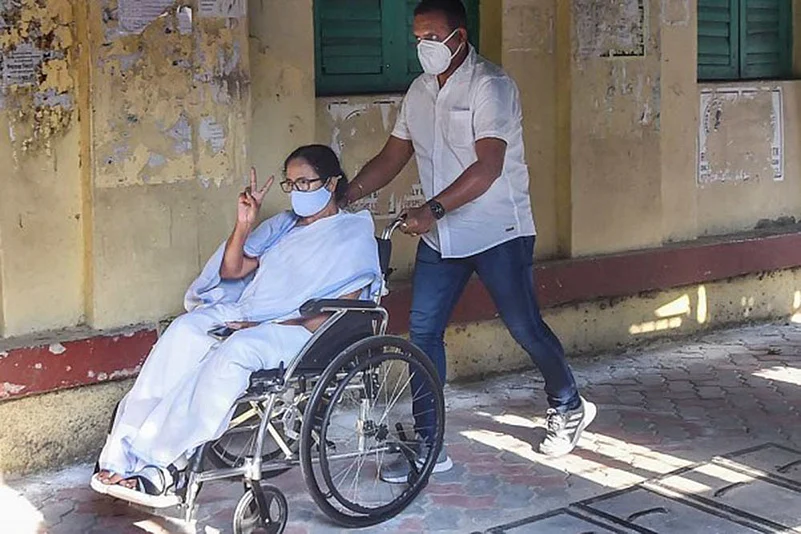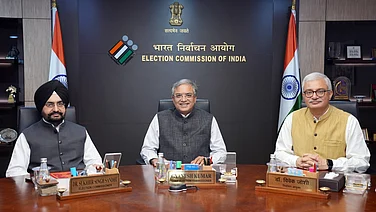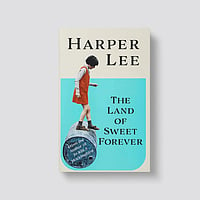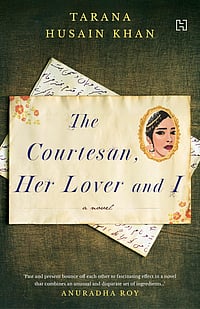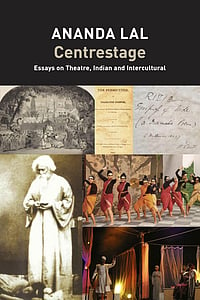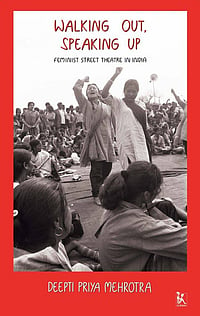Lotuses mutating from their peaceful bloom time to left forked swastika status, a wheelchair morphing into a battle chariot, ultimately the Bengal elections were all about finding emblems to express a clash of ideologies. And certainly it was the stuff of epics – a man with a 56 inch chest going up against an ageing woman with the darting energy of a mouse.
Add Covid-19 to the Kurukshetra and people began to wonder why they were taking part in something that Marvel Comics would never have dreamt of. Everyone was aware that the battle was going to be joined even though most people in Bengal were busy shaking their heads and insisting that the grass flowers had had it. There were comments from a bristling bastion of grey haired ladies like, “Do you want to live in West Bangladesh?” backed by the theory that the minority was fast becoming a majority which had been fuelled by an efficient fake news cell.
Silence sat on the morning of May 2, like a lid, broken only by the cawing of crows and the occasional noise of buses. Satyajit’s Ray’s birthday fell slightly by the wayside. There was the feeling of being under some kind of scanner - but then that had happened before when Bengal’s red fortress was cracked open. Televisions could be heard blaring in the paras as the vote counting progressed and an occasional shout of ‘khela hobey!’ that finally pulsated into a beat near the Gariahat crossing in the afternoon and the grass flower pennants whizzed on triumphant motorbikes down Rashbehari.
Was the wheelchair an accident or a conspiracy? No one was too sure – many went for the conspiracy theory. However the Opposition brought out a wheelchair rally and irritated those who actually spent their lives in wheelchairs and relied on them for support. The Spastics Society half contemplated bringing out a genuine wheelchair rally but thought better of it because of Covid.
Symbolically the wheels actually got the better of the Hawaii chappals – possibly since they weren’t being walked on. However, the blue strapped slippers enjoyed a revival when the results came in. Many women felt a slap of Hawaii slipper across the cheek would be the perfect retort to various catcalls that had resounded during the election campaign.
There had been many comments about maids and shrill voices down the years from the English proficient community –and along the way Kolkata became a blue and white city as the CM affirmed her fondness for the colours –though the inspiration for those more probably came from Mother Teresa who wore the same colours and slippers. However, as an icon, a maid’s slippers are possibly more spectacular because they are unexpected, than those of saint – everyone has a favourite grumble about a maid. “Go ask Mamata for a maid!” a Gujarati friend told me grumpily after the results and got an earful on hate politics from me as a result.
With Mamata it has always been about the allegorical – the fiery street fighter going up against a juggernaut, or the new Asterix holding out against the conquering hordes with the help of her able deputy DerekQuizmasterix, by now she probably has had the Bengaul concept explained to her. A woman in a white sari with a green border going mano a mano against a wall of red. Three decades and four years silenced by stree shakti. What was it that SMSes read all those years ago? 'Counting date 13th May, Ma Mati Manush 13 letters, Mamata Banerjee 13 letters, chief minister 13 letters'?
And now a decade later the imagery repeats itself, the sari border now blue, the juggernaut saffron and odds more overwhelming.
The red fortress after that defeat has sadly shown few signs of revival . Some say it is because the Chief Minister, mentored by Jyoti Babu took a few theories from Marx, applied it to her own party and crushed any red pretentions left in that direction. The saffron tsunami on the other hand, billed as equally indefensible, despite meeting its Waterloo has managed to increase its seats from 11 in the Assembly elections to 77 now and is unlikely to crumble since the pressure of extremism is far greater than that of ideology. “We will count the bullets and you will count the bodies,” one of them vowed.
The Hawaii chappal has ‘stamped’ its victory symbol. We have five years to see which way the wind blows unless a more effective virus with no class or community distinctions sorts the issue out once and for all.
(Anjana Basu is a Kolkata-based author and columnist. Views expressed are personal and do not necessarily reflect those of Outlook Magazine.)






